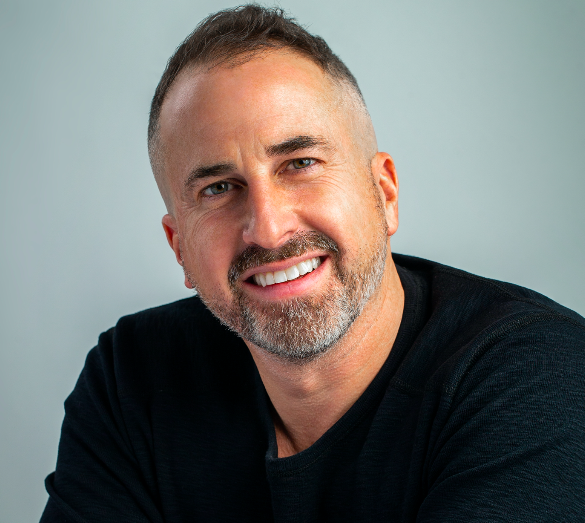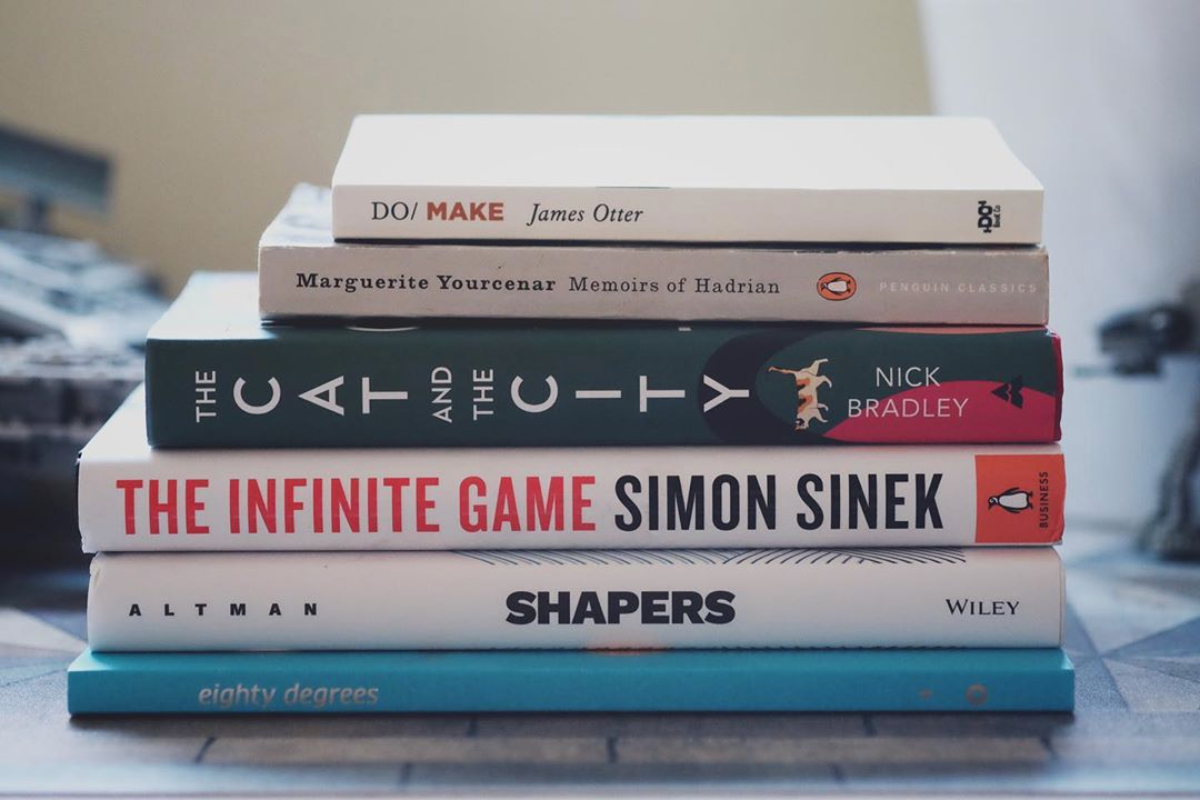For pretty much anything in life, the prudent thing to do is to plan and then execute. A school essay, vacation, baby, or wedding. But man plans, and God, well, he laughs.
It’s comforting to think you know where you’re going when you veer off the path. And for some, it’s crystal clear when it comes to writing a book: brilliant idea→ draft the outline → write a chapter or two → push out a proposal or land an agent)→ land the deal.
And then set to work on doing the hard work — writing.
What a Long Strange Trip
Writing became my tool to discover myself. And I don’t believe there’s any right way when it comes to writing. We have to feel our way there.
Writing is like driving at night in the fog. You can only see as far as your headlights, but you can make the whole trip that way
— E.L. Doctorow
I was late to the writing game, I started blogging when I was nearly 30. A newsletter quickly followed that I still send out every month.
Five years ago I starting writing articles about sane workplaces, self-management, empathy at work, 4-hour workdays, creativity, and meaningful work. I was then approached to write an ebook. Since I was and still am obsessed with the topic — it kinda felt like a dream.
I then did what any normal person would do. I packed my bags and booked a one-way trip to Bali.
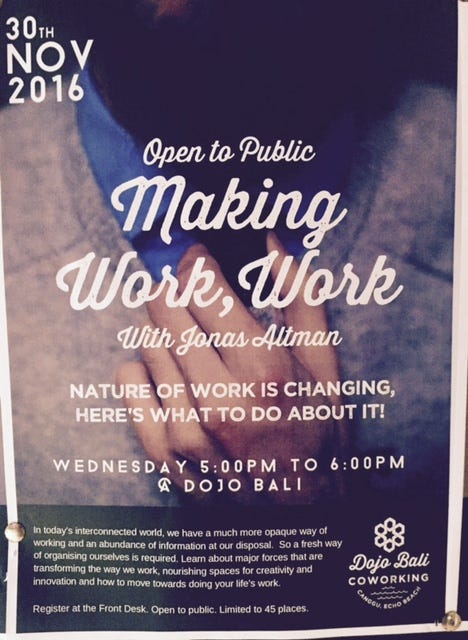
The first theme I explored was Convergence. I looked at exponential technologies, complexity theory, and the collision of industries.
Then Agility, where I investigated the nature of work, the pace of change, and the paradigm shift we’re now in.
Lastly, I scratched the surface on Talent, dipping into the emergent practices of the purpose generation that’s so hungry to humanise work.
The problem? Way, way too nerdy. If you were struggling with the previous three sentences it’s because they were dry as hell. Not accessible nor ‘fun’ to read. If I wouldn’t want to read it, what on earth am I writing for? And more to the point for whom am I writing?
After completion of the ego-fluffing ebook, I scratched my beard (or chin as I didn’t have a beard at that time) and decided to keep writing. Only this time I was determined to lighten things up. I’d do more to dissolve how I wanted to sound and focus more on doing a job for my reader. I could for both for me and for you.
I stopped ‘feasting on my own thoughts,’ as Plato would put it and began dissolving my ego. I gained a quiet assurance that I’m not talking at my reader but she’s riding alongside me on this journey.
And I’d inject much more of what people really want to read about: stories.
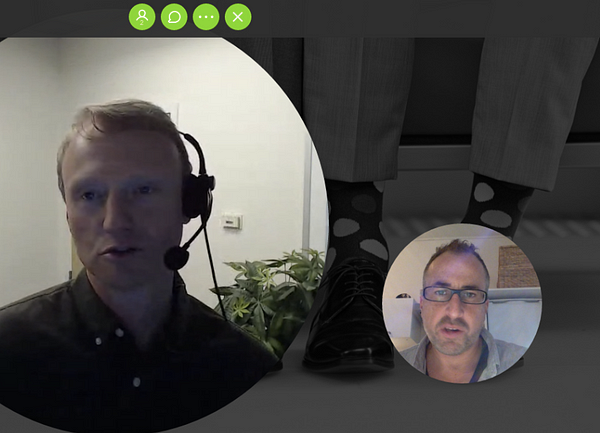
I set out to learn everything I could about the new ways of working from the people who were living it. I interviewed hundreds of CEOs, organisational designers, social psychologists, workplace strategists, start-up founders, culture geeks, and creative freaks. I uncovered a lot of surprises about people, rhythms, rituals, rest, and myself.
I conducted more interviews and ran countless workshops all over the world. The one common theme?
Trusting people to get on with their work lets the human spirit flourish.
We want to feel human at work. What’s crazy is how long we’ve subordinated ourselves to what the workplace wants us to be: machines. At long last, the tides are changing.
Do the Work
Believe me, I’ve tried to sketch, to plan, to structure, to map, — I just can’t. At least not well. It’s simply not part of my programming. Even this article as a meandering maze of thoughts, streams of consciousness, and divergent digressions. This is the drum I beat to.

The benefit is how research becomes mesearch. The curse is that it’s exceedingly difficult to wrangle everything into something that anyone would actually want to read. I’m still shocked I was able to finish a book.

As I devoured books, the notecard system became my saviour. No doubt most who are serious about writing do so as a practice — willing to write infinitely more words than will ever be published.
And that’s the f*cking point. When you type from the heart, when you write to make sense of the world, when you tell stories to inform, entertain, and arouse your reader— you’re willing to spend hours with your butt in the chair.
And shitty first drafts become your closest companions.
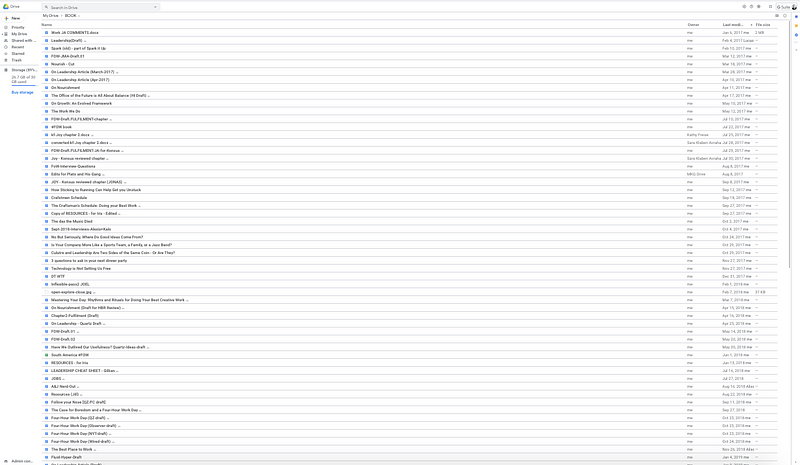
For four years, six days a week from 10 am to 12 noon I wrote. I didn’t always know precisely what I would write but I did know how long I’d be at it. I was militant in ensuring there were no disturbances during this sacred time. Absolutely no email, Instagram, texts, or any sneaky bugger that was going to try to rob my focus. And voila! two hours later I have something. Typically it was quite awful — but still, it was something.
It’s my appetite for clarity that acts as my fuel. Writing is my personal prescription to put me more at ease. And so too is coffee. At least half of my book was written right here:

There’s something about Platform 7 that triggers me. As I nestle into a booth with my heavenly coffee, my brain mutters, “Get to it dude’. Often those two hours pass like lightning — so much so that I often forget how badly I need to pee.
Funnily enough, after years, I discovered the cafe is actually modeled on Gar du Nord station and (while the other location on Paddington station). It dawned on me then that this cafe has always felt like a home away from home.
The place which you choose to write is critical. When the writing ‘went well’ at the Balmoral Hotel in Edinburgh, J.K. Rowling decided to stay. It’s here where she finished the last of the Harry Potter books.
Charles Dickens demanded complete silence when he wrote. He also had nine particular objects on his window-facing desk, including a vase of fresh flowers, a gilt leaf with a rabbit perched upon it, and a bronze statuette of a gentleman embracing a swarm of puppies.
Writers can be superstitious.
Endless Editing
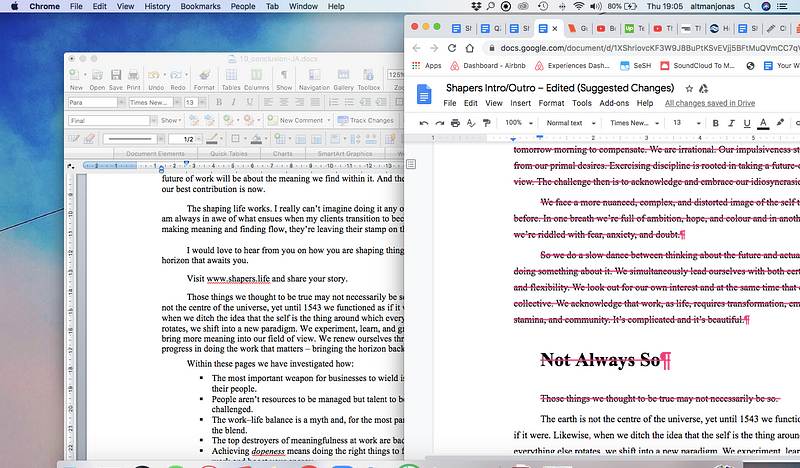
“Examine every word you put on paper. You’ll find a surprising number that don’t serve any purpose.”
— William Zinsser
The secret to good writing is editing. And the real trick is to find those you can lean on to say what you want to say — only better. For me, this is my dad and Ann.
My dad is a retired lawyer of 45 years and spent his working life immersed in words — reading, drafting, writing, rewriting, refining, revising, and editing. He’s the most organised human I know. And as a Capricorn, the ultimate worker bee. My writing is exponentially better because of him.
Ann is a wizard when it comes to narrative structure. Her superpower is to zoom out and see the big picture and how all the dots connect. She can whoosh into the minutia and see how small changes lead to big impact. She’s equally the worst and best sparring partner I’ve ever known.
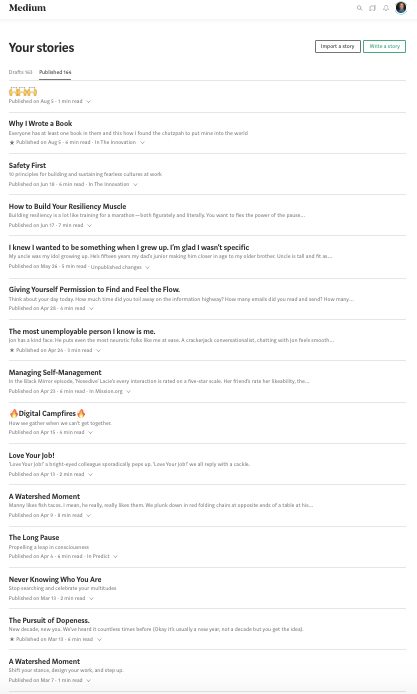
This is not to say that one doesn’t have to do extensive editing on their own. I moved from cue cards to google docs, to Word (rather reluctantly) to Medium, to paper and back again. Every time I thought I was done “editing” I was thrown another curveball. The last chapter in nearly became a book in itself as I wrestled with it for months.
What I came to truly appreciate is how taking a break — sometimes for days or weeks on end — would let me see the same words with an entirely new lens. I also found walking, running, reading, and surfing a godsend when I got stuck.
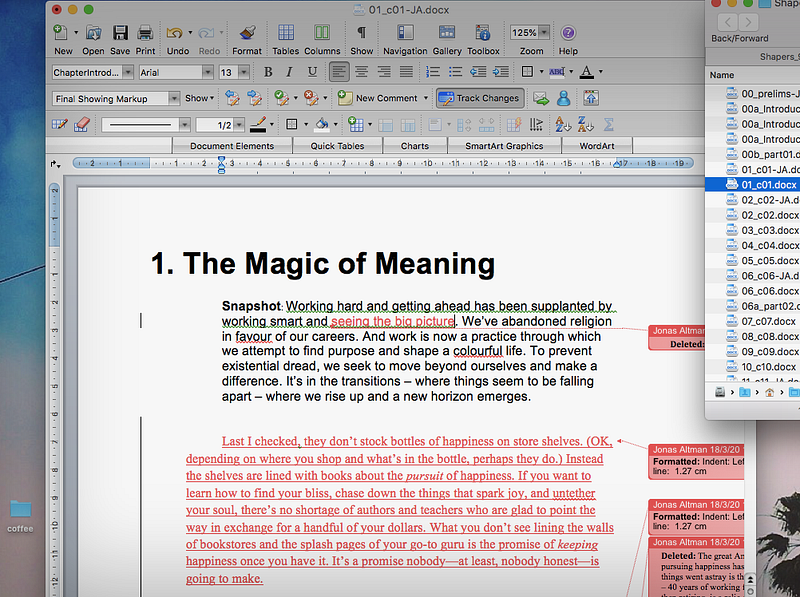
We never quite say what we mean the first time around. Rewriting is where the magic reveals itself.
At long last, I printed out my book. I sat for hours with pen in hand marking pages up like a disgruntled English teacher. There’s something about seeing it in ink that fundamentally changes the way in which you ‘read’ yourself.
And In the End
While I didn’t set out to write a book, when I found myself through SHAPERS my mission became to share it with the world.
I enrolled in a course to change the way I was work to be yet more deliberate.
I drafted a book proposal and found a publisher.
I stalked my designer on Instagram.
My marketing magician came through my friends at Paintgun.io.
Web designer, a now long-time collaborator via Upwork
Splash videos through the unflappable BabyCakes Romero
PR guru through word of mouth.
And without my support network including friends, family, students, colleagues, coaches, therapists, and you — I wouldn’t be writing this.
It really does take a village to birth a book.
Finally, people do judge a book by its cover. Getting the cover art right was something I totally underestimated:
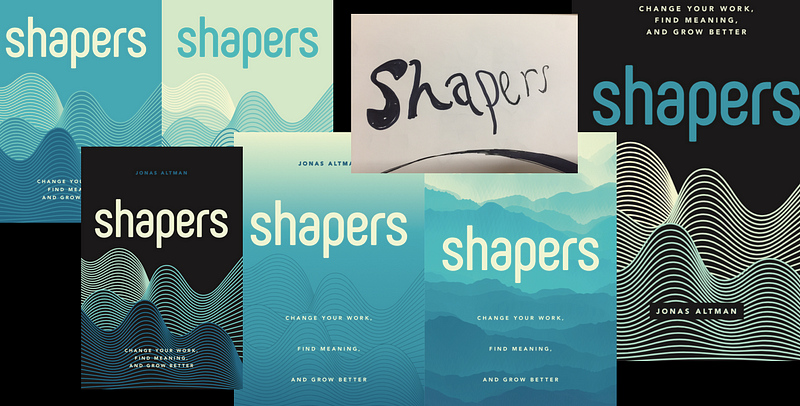
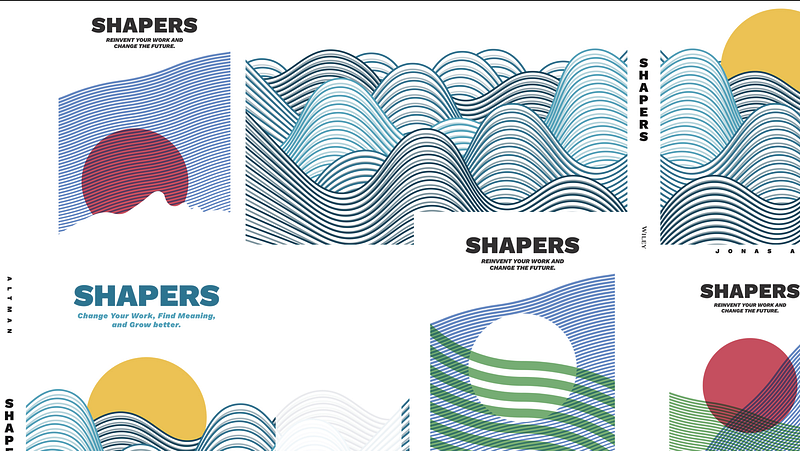
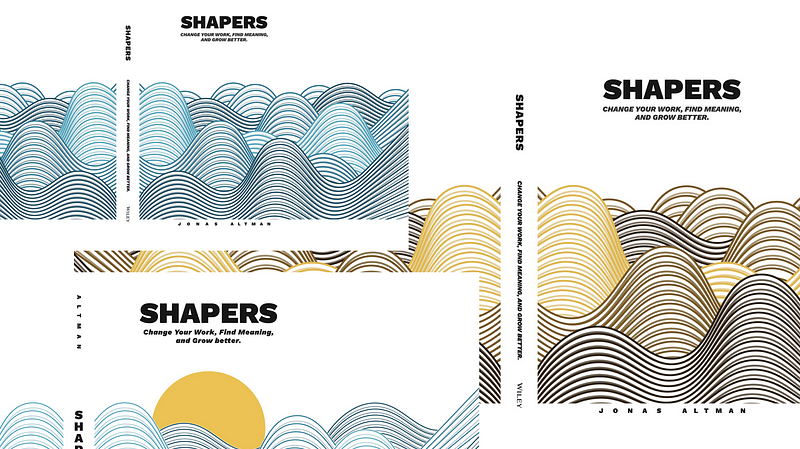
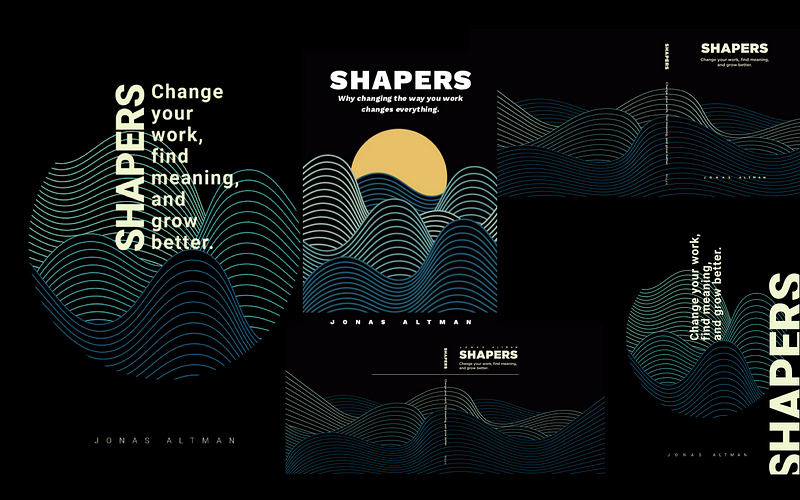
And finally, after umteen versions it was between black and white so I just put it out there:
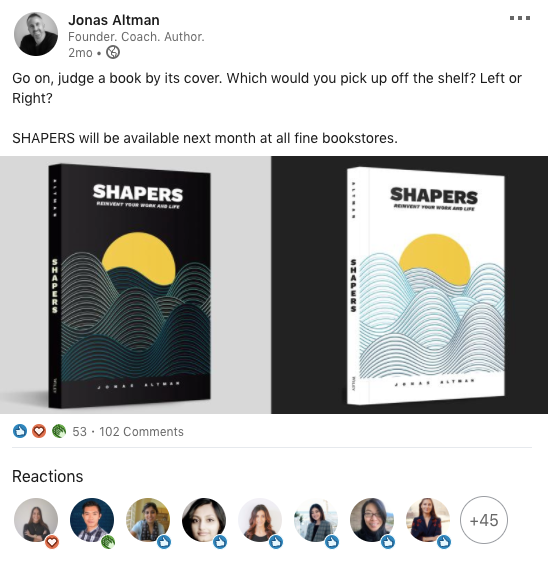
On reflection, writing helped me overcome a longtime fear: carrying too much about what others think. I learned how to stop giving a sh*t. Maybe I got older, or tired of pleasing, whichever way — writing let me, let go.
“If we are immersed in the work of finding expression for this life, if we wake up each morning to the possibility of discovery, not only will we have a better shot at getting something worthwhile on the page, we will simply be better.”
— Dani Shapiro
Turns out it was never really about writing a book for me. It was about my journey to discover my purpose through writing. I just happen to become a shaper along the way.
My new program THE SHAPE of WORK launches on February 1st, 2021. You can join the first cohort to transform the way you see yourself and your work.


